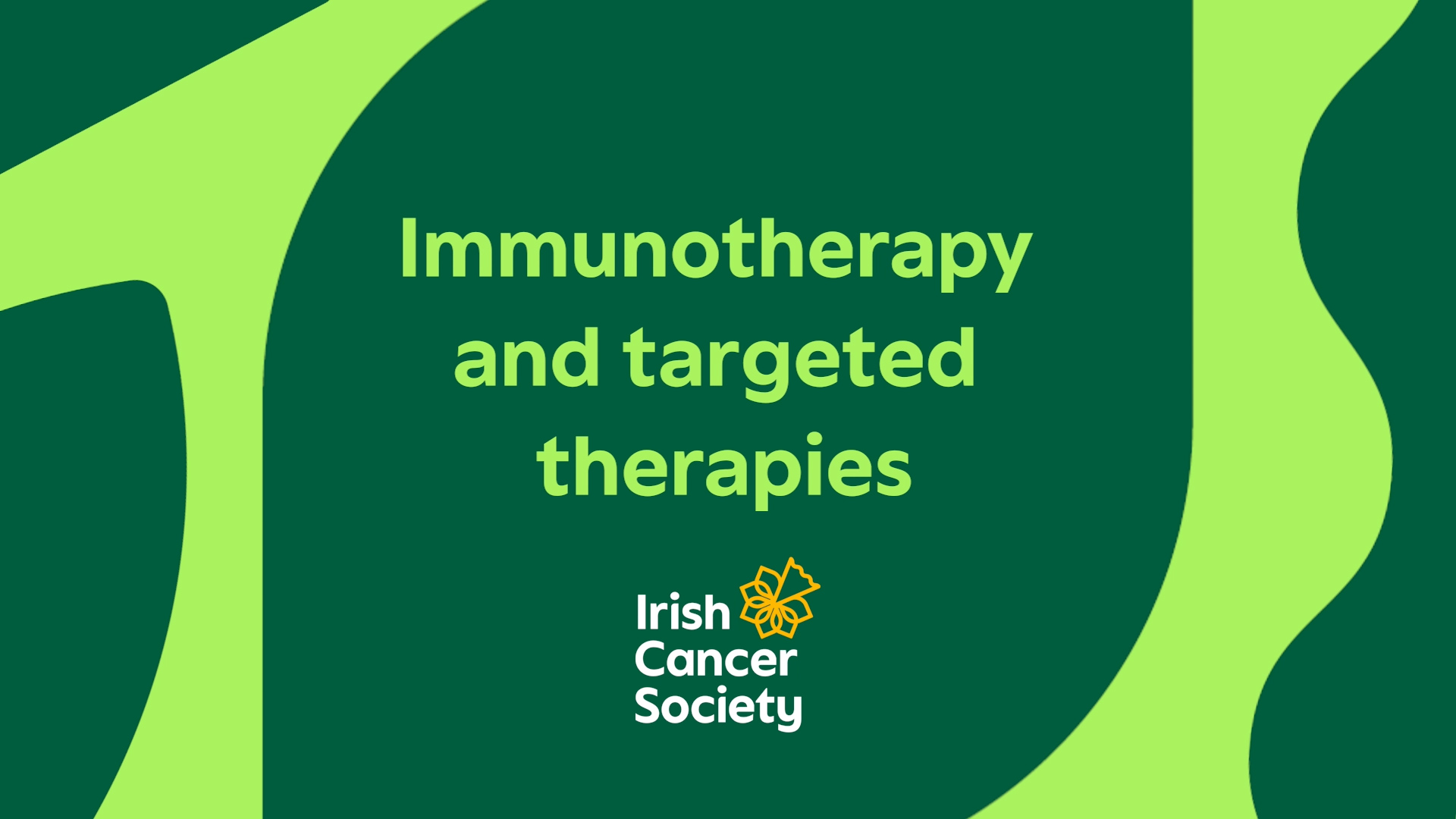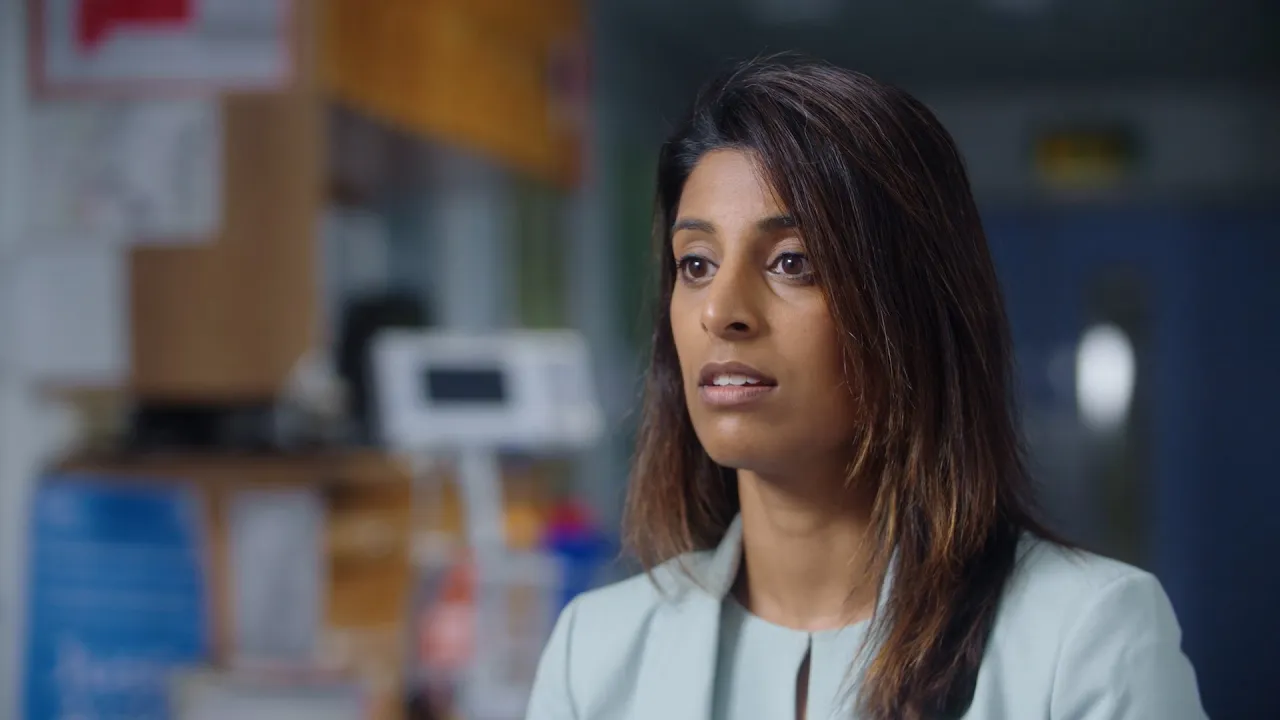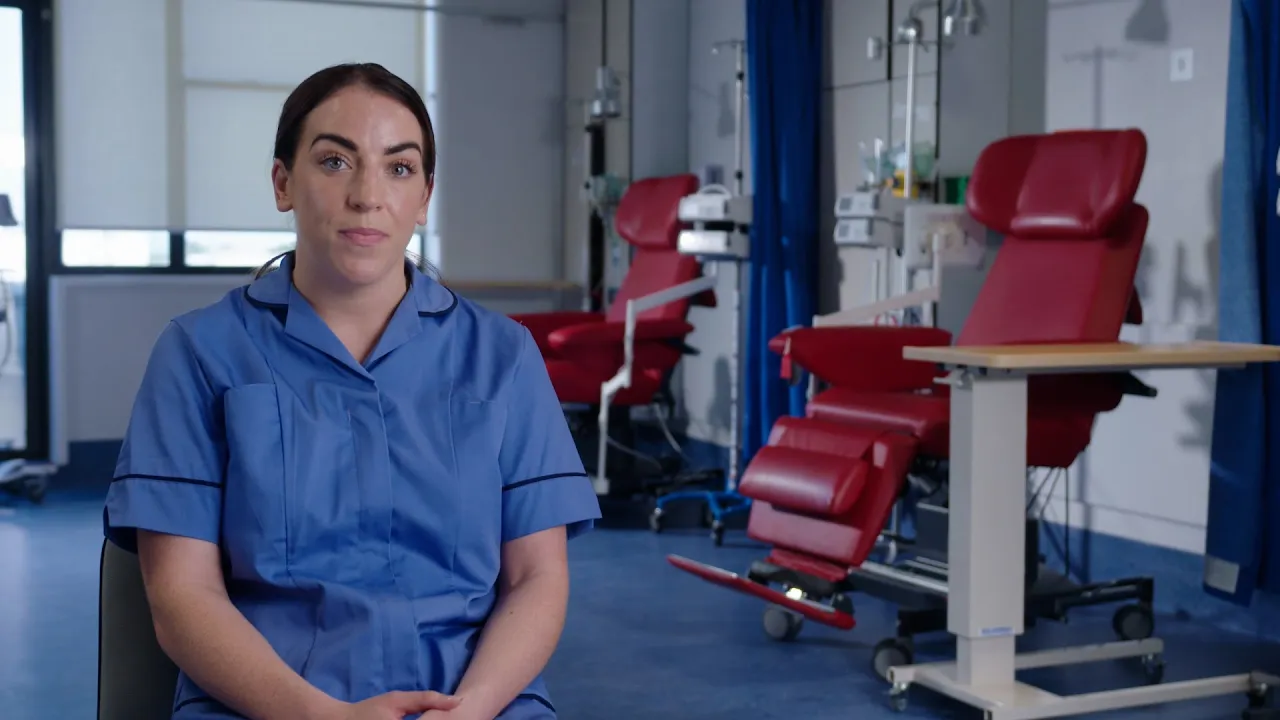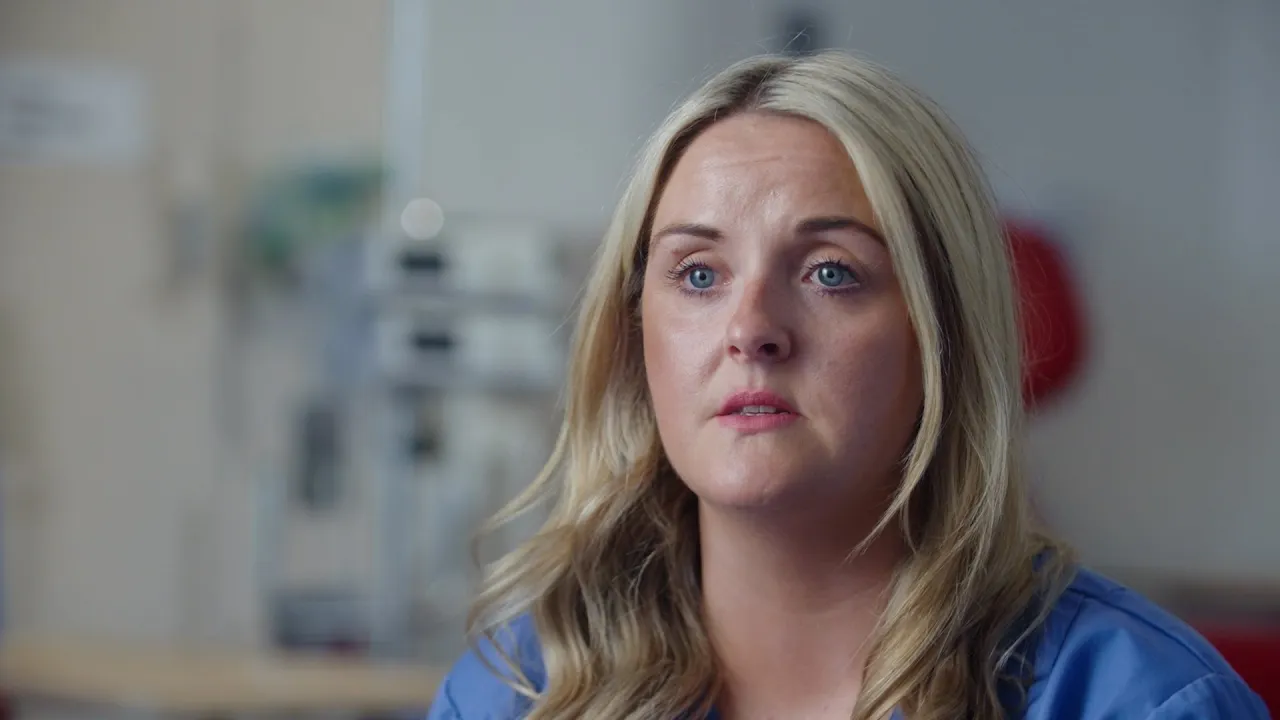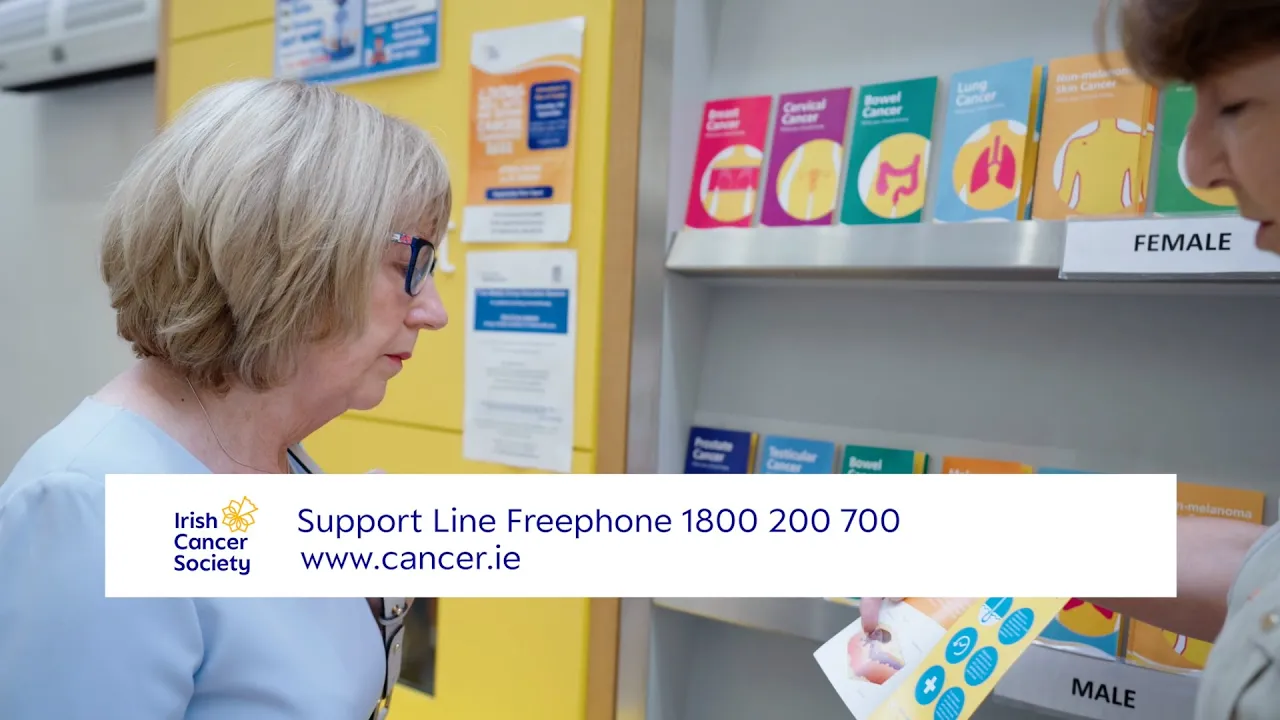Immunotherapy and targeted therapies 4: Side-effects
This video outlines what potential side-effects to expect during and after treatment as well as explains the importance of reporting side-effects and who to contact if you are feeling unwell.
0:03
Side-effects vary from person to person and depend on the drug therapy that you are taking. Not all cancer drugs cause hair loss or sickness, for example. You might get only very mild side-effects, and you might just get one or a few side-effects.
0:21
It's not possible to say before you have a drug whether or not you will have a particular side-effect. It is also difficult to assess when the effect will occur and how each patient might be affected.
0:35
We do know that side-effects depend on many things, including: which drugs you are taking, how long you have been taking the drugs, your general health, the dose or amount of the drug, and the way you take the drug, for example, in tablet form or by injection, other drugs or cancer treatments that you are taking.
1:03
Side-effects may affect different parts of the body, such as your lungs. This may include new onset of a cough, shortness of breath, chest pain, and can indicate a lung problem called pneumonitis, and this is inflammation of the lungs.
1:22
Your digestive system. There may be an increase in your normal bowel movements, which can include diarrhoea, black tarry stools, pains or cramps in your tummy, and sometimes this can mean that there's a problem called colitis, and this is inflammation of the colon, which is common with immunotherapy and requires immediate assessment at your cancer centre.
1:48
Some targeted therapies cause diarrhoea or constipation, and you will be told if one or the other might be a problem. It is important to report either of these quickly if it is not settling by itself or with medication.
2:05
Your skin; you may develop an itch or a rash, and it’s important that either of these are assessed by your treatment team.
2:14
Your liver: your skin or eyes may become yellow in colour, and you may have a pain on the right-hand side of your tummy. You may have nausea or vomiting, increased bruising or bleeding, which may indicate a problem called hepatitis, and this is inflammation of the liver.
2:34
Other side-effects include headaches or confusion, blurring of your vision, muscle aches or joint pains, numbness and tingling of your hands and feet, fatigue and tiredness.
2:57
Signs of infection: you will be we asked to also look out for signs of infection at all times. These signs may include feeling shivery and unwell or a high temperature. It is important that you check with your treatment team about the need for vaccines or your susceptibility to infection at various stages throughout your treatment, such as during winter or flu season.
3:23
You may experience side-effects for up to one year after your immunotherapy treatment ends. This may not be the case for targeted therapies. The side-effects of immunotherapies and targeted therapies are treated under close observation and monitoring by your medical team.
3:44
Stay well-hydrated and don't make any changes to your treatment without consultation with your doctor or your team. We advise that you take notes of any side-effects or experiences you have. These notes can then be used to report back to your hospital teams.
4:03
Another useful tip is to become familiar with your own drugs so that if you do experience issues, your medical team can look at the full picture with you.
4:17
All cancer services have a dedicated acute oncology nurse or a day ward contact who is available on the phone if you have any concerns or questions. You will be given these contact numbers as well as an out-of-hours hospital or ward contact number.
4:32
It is helpful for the acute oncology nurse if you can self-report your symptoms to them. For example, taking your temperature or taking a photo if you have a rash. It is important to call 999 if you have chest pain or difficulty breathing.
4:48
Call your 24-hour advice line immediately if you have any of these symptoms. Feeling generally unwell, shivery episodes or flu-like symptoms, a temperature of 37.5 or above, a temperature below 36 degrees, vomiting, diarrhoea, bleeding or unusual bruising, swollen or painful legs, a sore mouth that stops you eating or drinking.
5:15
If you happen to need to go to the emergency department or attend another clinic, please make these teams aware you are receiving immunotherapy or targeted therapies, and carry your cancer treatment alert card.
5:27
Carry this card with you at all times. If you're unwell, show it to the receptionist at your GP or emergency department and to any healthcare professional you meet, including ambulance staff. This card will make sure you are seen immediately, if needed.
5:43
The earlier you identify side-effects from your treatment and contact your team, the faster the side-effects will resolve. Please do not stop taking your medications, talk to your nurse first. Do not suffer alone at home, always contact your hospital to get advice on early management from your team.
6:00
This service is a dedicated phone line which will connect you to a qualified cancer nurse who can give expert advice immediately. The acute oncology nurse will assess, advise and support you. They may ask you lots of questions as they assess you. They may also ask you to attend hospital, to be assessed to ensure early intervention or treatment to avoid hospital admission, or to check if immediate review is necessary.
6:26
Some examples why you would contact the nurse include; if you have a high temperature, you may need to come to the hospital immediately and it is most likely you will be admitted to the hospital for treatment with intravenous antibiotics.
6:40
If you're feeling sick, it may well be that the nurse will organise a change of prescription and that you can be monitored at home.
6:46
If you are tired, there are tips that the nurse will give you to help you to manage your tiredness at home.
Immunotherapy and targeted therapies playlist
